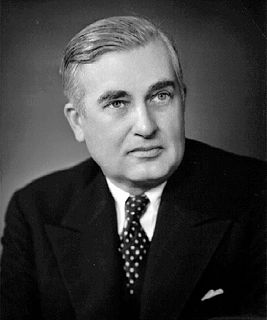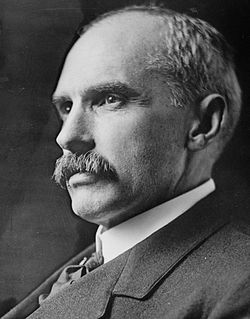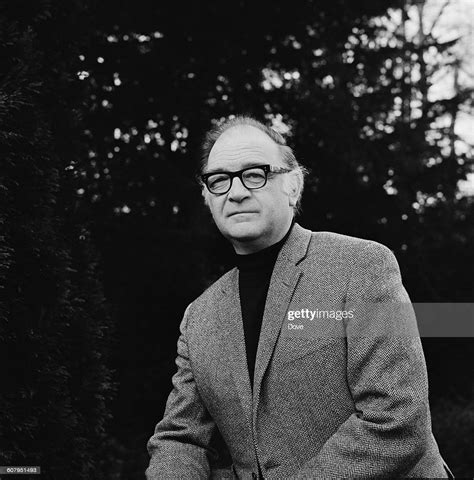Top 1200 Public Sector Quotes & Sayings - Page 5
Explore popular Public Sector quotes.
Last updated on December 18, 2024.
If you look for instance at the automobile industry, part of the reason that you have the expansion of that sector, is precisely because we have gone out to talk to the automobile companies to explain government policy with regard to that sector, to talk to them about the MIDP and things like that. And indeed, it has been a very important part of attracting those investors to put in money in the South African economy and build motorcars in South Africa.
I spent my whole life in the private sector, 25 years in the private sector. I understand that when government takes more money out of the hands of people, it makes it more difficult for them to buy things. If they can't buy things, the economy doesn't grow. If the economy doesn't grow, we don't put Americans to work.
Republican leaders have made clear they have no plans to use the power of government to stimulate the economy, invest in job creation and spur job growth. The Fed's plan is to give banks more money to finance the private sector job creation. But banks have ample cash now; they aren't lending, and the private sector is not creating the jobs. That is why we have 15 million people unemployed.
Norway is much more than just oil. We have a rapidly growing fish sector, a high-tech metal and aluminium industry, abundant access to green hydropower with all the opportunities that provides, an educated workforce, and an incredibly potent welfare system where people are allowed to contribute with what they have and what they know. And if that is not enough, our potential has perhaps even been limited by the oil sector draining all the intellectual and creative talent.
If you put these five things together - you can't use money to attract talent, you can't advertise, you can't take risks, you can't invest in long-term results, and you don't have a stock market - then we have just put the humanitarian sector at the most extreme disadvantage to the for-profit sector on every level, and then we call the whole system charity, as if there is something incredibly sweet about it.
All buildings, large or small, public or private, have a public face, a facade; they therefore, without exception, have a positive or negative effect on the quality of the public realm, enriching or impoverishing it in a lasting and radical manner. The architecture of the city and public space is a matter of common concern to the same degree as laws and language—they are the foundation of civility and civilisation.
The socialism of centralised state control of industry and production, is dead. It misunderstood the nature and development of a modern market economy. It failed to recognise that the state and public sector can become a vested interest capable of oppression as much as the vested interests of wealth and capital. it was based on a false view of class that became too rigid to explain or illuminate the nature of class division today.
Even CEOs police their own bureaucracy. Trump is not that. He does have more in common with these guys than most elected officials would have, particularly in the Obama administration. Obama didn't have anybody that'd ever worked in the private sector. All they had is a bunch of theoreticians who thought they were smarter than everybody that runs businesses in the private sector. And who knows what kind of pressure was brought to bear. Remember, Obama's agenda was one that was to be governed against the will of the people.
Public virtue cannot exist in a nation without private, and public virtue is the only foundation of republics. There must be a positive passion for the public good, the public interest, honour, power and glory, established in the minds of the people, or there can be no republican government, nor any real liberty: and this public passion must be superiour to all private passions.
It is not necessary for the politician to be the slave of the public's group prejudices, if he can learn how to mold the mind of the voters in conformity with his own ideas of public welfare and public service. The important thing for the statesman of our age is not so much to know how to please the public, but to know how to sway the public. Those who manipulate this unseen mechanism of society constitute an invisible government which is the true ruling power of our country.
I think philanthropy is also growing and catching on. Figuring out how the philanthropy sector, which is quite small compared to the private sector, which is the biggest by far, and then the governments, you know, even in these poor countries over time has to take on these key responsibilities. How does philanthropy accelerate that? Drive the kind of innovations, make sure they get used well. So it plays this kind of special role.
Most people won't have opportunity to do full-time service, but those lucky enough to have monetary wealth or some spare time really can make an enormous difference. As someone who's now in the public sector, and is seeing up-close-and-personal the real impact of what we do and what we give, I can tell you: every dollar and every volunteer help, in more ways than you can count.
If I were Mark Zuckerberg or any of these guys, I would say, "My God. How does the world expect us to deal with this?" I mean, it's too big a responsibility; I think they're going to welcome this. They'll maybe keep it in the private sector, but they'll welcome some form of regulatory operation because they've been so successful that they are a global, public good. Everyone needs them.
Are you an action-oriented, take-charge person interested in exciting new challenges? As director of a major public-sector organization, you will manage a large armed division and interface with other senior executives in a team-oriented, multinational initiative in the global marketplace. Successful candidate will have above-average oral-presentation skills
If you look at the fact that the best chance we have for a good economy is the private sector. The government cannot create jobs. If the government could create jobs, then Communism would have worked. But didn't work. So what we have to do is allow the private sector and the entrepreneurial spirit to lead us back to a job-filled recovery.
When large companies take on risk, then they impose risks on the rest of the system. And these are systemic risks and these systemic risks we never used to think were really that important, but as soon as we recognize how the financial sector - the risks the financial sector takes on can impact the entire global economy, we realize that those risks needed to be controlled for the social good.
What I am saying every day to Malawians is that time has come for us to move from aid to trade. We have picked several sectors that we think we can focus on immediately in order for us to grow our economy. So we have decided to diversify agriculture, we decided to develop our tourism sector, we have decided to develop our mining sector.
When I first saw China, there were no automobiles. There were no supermarkets. There were no high-rise buildings. There were no consumer goods. There were no restaurants that were at least accessible that foreigners could see. It was a Stalinist society, and a very poor Stalinist society. So the economic system has totally changed, and the private sector in the economic system is now the dominant sector. It didn't exist at all as late as 1979.
When we conducted focus group interviews in the first municipality in Brazil before initiating the pilot project, a woman commented: Getting an appointment in the public sector municipal health services is like "winning the lottery." I would like to make it possible for many women and men in Latin America to win the lottery and receive the type of reproductive health services they so urgently need.
Human beings need community. If there are no communities available for constructive ends, there will be destructive, murderous communities... Only the social sector, that is, the nongovernmental, nonprofit organization, can create what we now need, communities for citizens... What the dawning 21st century needs above all is equally explosive growth of the nonprofit social sector in building communities in the newly dominant social environment, the city.
I think that they hoped the private sector would come in. And the private sector tried to come in until they saw the size of the problem. I mean, from were people on that weekend that thought they'd had a solution. And then the hole kept getting bigger and bigger. And all of a sudden became apparent that 20 billion wouldn't do it and 30 billion wouldn't do it and 40 billion wouldn't do it. So it got beyond anybody's ability to certainly to do it in a short period of time.
Uganda's budget is 40 percent aid-dependent. Ghana's budget is 50 percent aid-dependent. Even if you cancel the debt, you don't eliminate that aid dependency. This is what I mean by getting to the fundamental root causes of the problem. Government, the state sectors in many African countries need to be slashed so that, you know, you put a greater deal of reliance on the private sector. The private sector is the engine of growth. Africa's economy needs to grow but they're not growing.
What outsourcing causes - what it's caused by, rather. I understand, for instance, how to read a balance sheet. I happen to believe that having been in the private sector for twenty-five years gives me a perspective on how jobs are created - that someone who's never spent a day in the private sector, like President Obama, simply doesn't understand.
70 to 80 percent of country economy is controlled by the Bolivian state, and the other percentage by the private sector. We admit that it's legal, constitutional, that the private sector is entitled to its own economy, but to ensure these profound changes that clearly this government is promoting, including profound changes in the food industry, what we are doing is an important step.
In a capitalist system, there's a principle that if you invest, especially in a long-term risky investment, if something comes out of it, you're supposed to get the profit. It doesn't happen in our system. The taxpayer paid for it and gets nothing - assumes all of the risk, gets zero. The money goes into the pockets of Bill Gates and Steve Jobs, who are ripping off decades of work in the public sector.
The Obama administration was filled with people that had deep resentment for people successful in the private sector, in business or what have you, with no way of understanding them or relating to them at all, and no desire to. Much of the Washington establishment, particularly the Democrat side of it, has the same view of American business and the private sector. And here comes Donald Trump entering their world, and they are not equipped to understand how he operates or what he's doing. They're plugging him and his business techniques into their political models, and it doesn't work.
We are all used to paying a sales tax when we buy things - almost 9 percent here in New York City. The application of this concept to the financial sector could solve our need for revenue, bring some sanity back into the financial sector, and give us a way to raise the revenue we need to run the government in a fiscally responsible way.
The loan crisis and the increasing slashing of funds for students, coupled with the astronomical rise in tuition, represent an unparalleled attack on the social state. The hidden agenda here is that when students graduate with such high debts, they rarely choose a career in public service; instead, they are forced to go into the corporate sector, and I see these conditions, in some ways, as being very calculated and as part of a larger political strategy to disempower students.
Al Gore's problem, in my view, is that he never liked politics. He's actually deeply uncomfortable in it but felt he had to do it because of his father. He's much more comfortable in a private sector role and has, in fact, been much more successful in a private sector role, and I admire him for that.
What do intellectuals and opinion makers get from big government? An increasing number of cushy jobs in the bureaucracy, or in the government-subsidized sector, staffing the welfare regulatory state, and apologizing for its policies, as well as propagandizing for them among the public. To put it bluntly, intellectuals, theorists, pundits, media elites, etc. get to live a life which they could not attain on the free market, but which they can gain at taxpayer expense.





















































